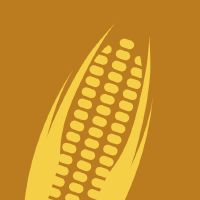Topic Menu
► Topic MenuTopic Editors


The Future of Farming in a Changing World: From Physiology to Technology
Topic Information
Dear Colleagues,
This Topic explores the multifaceted effects of climate change, precision agriculture technologies, and agrivoltaics on crops’ physiology, growth, yield, quality, and subsequent food processing. These factors significantly influence the agricultural economies of many nations, leading to challenges (such as water scarcity) and opportunities (like the advent of innovative technologies). Climate change manifests in diverse forms: elevated temperatures, droughts, heat waves, intense rainfall, and the emergence of new diseases, which each present unique challenges in crop production. Conversely, precision agriculture technologies offer hope, enabling resource conservation, enhanced crop management, and the efficient utilization of traditional and underutilized crop varieties. This Topic will explore these issues to provide insights and solutions that will shape future crop production strategies.
Dr. Giuseppe Ferrara
Prof. Dr. Olaniyi Amos Fawole
Topic Editors
Keywords
- climate change
- precision agriculture
- processing
- energy
- resources
Participating Journals
| Journal Name | Impact Factor | CiteScore | Launched Year | First Decision (median) | APC |
|---|---|---|---|---|---|

Agriculture
|
3.6 | 6.3 | 2011 | 18 Days | CHF 2600 |

Agronomy
|
3.4 | 6.7 | 2011 | 17.2 Days | CHF 2600 |

Crops
|
1.9 | 2.4 | 2021 | 23.5 Days | CHF 1200 |

Foods
|
5.1 | 8.7 | 2012 | 14.9 Days | CHF 2900 |

Plants
|
4.1 | 7.6 | 2012 | 17.7 Days | CHF 2700 |

Preprints.org is a multidisciplinary platform offering a preprint service designed to facilitate the early sharing of your research. It supports and empowers your research journey from the very beginning.
MDPI Topics is collaborating with Preprints.org and has established a direct connection between MDPI journals and the platform. Authors are encouraged to take advantage of this opportunity by posting their preprints at Preprints.org prior to publication:
- Share your research immediately: disseminate your ideas prior to publication and establish priority for your work.
- Safeguard your intellectual contribution: Protect your ideas with a time-stamped preprint that serves as proof of your research timeline.
- Boost visibility and impact: Increase the reach and influence of your research by making it accessible to a global audience.
- Gain early feedback: Receive valuable input and insights from peers before submitting to a journal.
- Ensure broad indexing: Web of Science (Preprint Citation Index), Google Scholar, Crossref, SHARE, PrePubMed, Scilit and Europe PMC.

